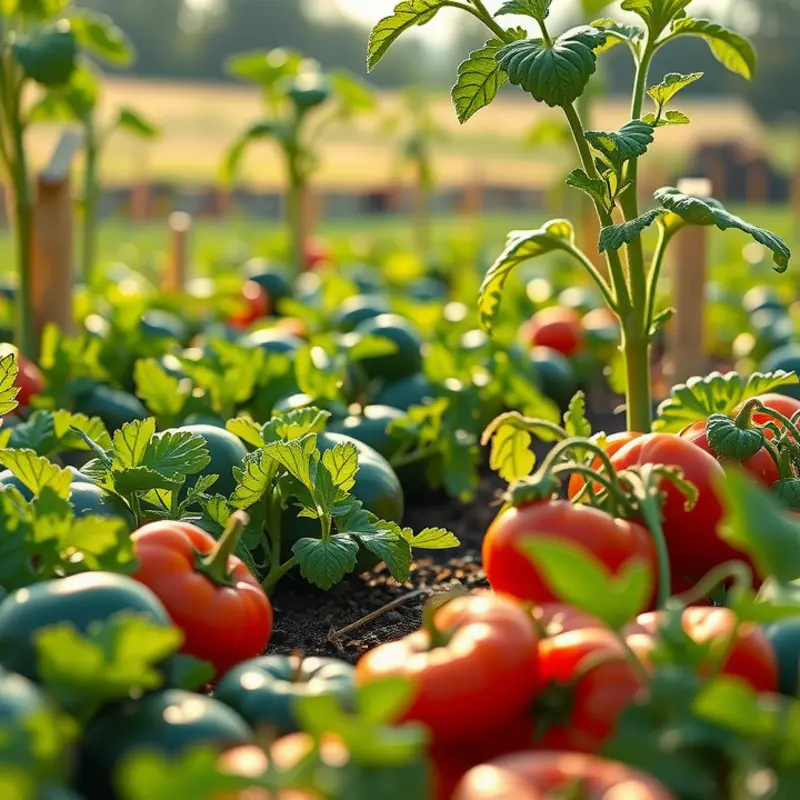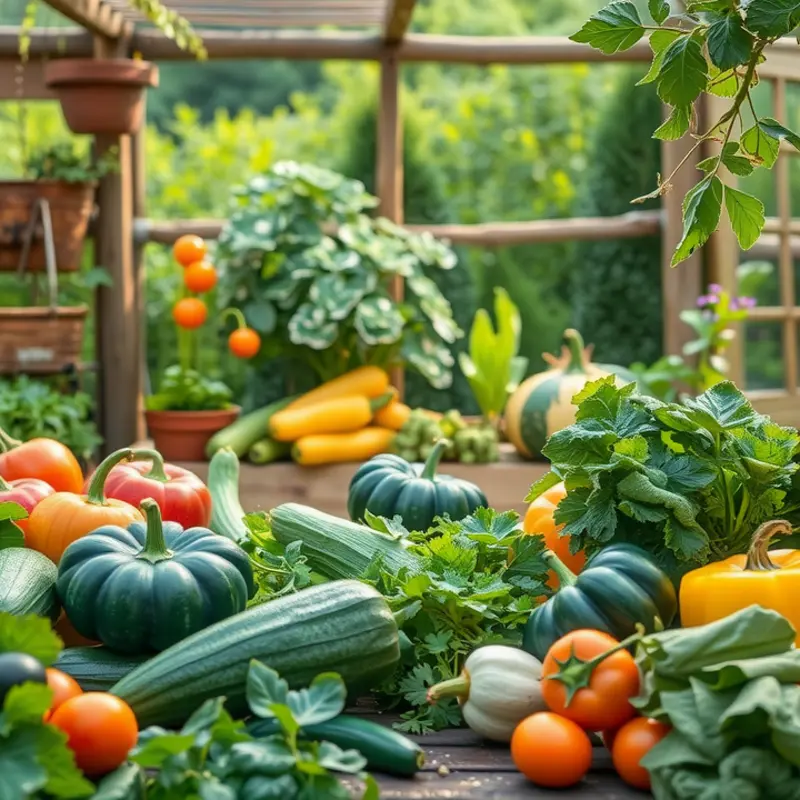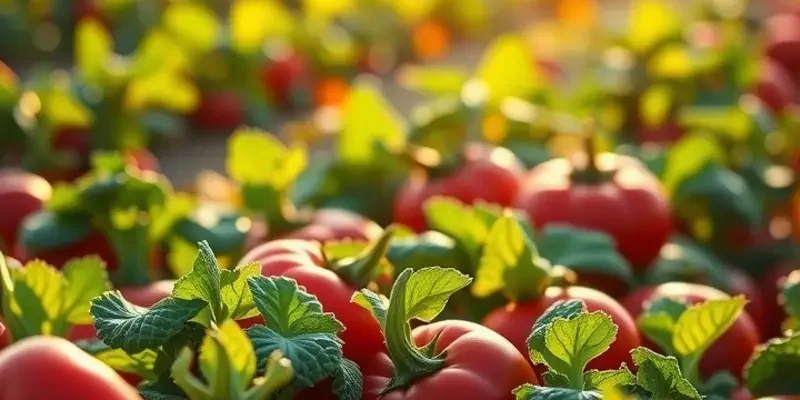The debate over fresh versus frozen vegetables is a common concern for those striving to maintain a healthy diet. Fresh produce is often celebrated for its taste and immediate availability, while frozen veggies are praised for convenience and shelf-life. Understanding the nutritional equivalence and benefits of both options can enhance your eating habits, ease cooking decisions, and ultimately support a balanced lifestyle. Let’s explore the data to help you make informed choices.
Nutritional Comparison: Fresh vs. Frozen

When it comes to vegetables, nutrition is paramount. Freshly picked vegetables at the peak of ripeness are expected to be nutrient-rich. However, for many consumers, frozen counterparts offer a convenient alternative, raising the question: which version retains more vitamins, minerals, and essential nutrients?
Fresh vegetables typically boast higher levels of nutrients when they are harvested at their peak ripeness and consumed shortly after. Yet, nutrient degradation starts as soon as they are picked, accelerated by exposure to light, temperature changes, and time. In contrast, vegetables destined for freezing are often harvested at peak ripeness and quickly frozen, a process that locks in nutrients. This method significantly slows down nutrient loss compared to fresh produce that sits on grocery store shelves for days or even weeks.
The freezing process itself involves blanching, a quick heat treatment, which helps preserve color and texture but can lead to some loss of water-soluble vitamins like vitamin C and certain B vitamins. Despite this initial nutrient reduction, the subsequent cold storage stabilizes nutrient levels effectively, sometimes making frozen vegetables a more nutritionally sound choice when fresh alternatives are past their prime.
Variations in farming and handling processes further affect these profiles. Organic farming practices, which avoid synthetic fertilizers and pesticides, can enhance the nutritional density of vegetables, providing both fresh and frozen varieties with a higher baseline of nutrients. Post-harvest handling, such as temperature-controlled transport and storage, can also impact the final nutrient composition. For frozen vegetables, maintaining a consistent cold chain is crucial to preserving their nutritional integrity.
Ultimately, the better choice between fresh and frozen depends on several factors, including how quickly fresh produce is consumed. In regions far from farms, where fresh vegetables spend significant time in transit, frozen options might be superior in retaining essential nutrients. Likewise, those aiming to minimize food waste might prefer frozen, as they can portion out what they need without fearing spoilage. Interested in reducing waste in your kitchen? Discover some tips on low-waste cooking here.
In conclusion, both fresh and frozen vegetables have their merits, and the choice can depend heavily on access, storage conditions, and consumption timeline. While fresh vegetables provide the highest nutrient levels when consumed promptly post-harvest, frozen equivalents offer a practical and nutritious option throughout the year, especially when fresh produce isn’t easily accessible. The key to maximizing nutritional intake lies in a balanced approach, considering both freshness and convenience.
Convenience and Cooking: The Practical Side of Vegetables

Balancing convenience with nutrition is a daily challenge that many face in their kitchens. Whether you’re a seasoned home cook or new to meal prep, the question arises: do fresh or frozen vegetables better suit a busy lifestyle? Let’s delve into the culinary aspects of both, examining preparation time, flavor profiles, and versatility.
Preparation Time
Fresh vegetables often require more time for washing, peeling, and cutting. While this might be part of the cooking ritual for some, others may find it cumbersome. On the contrary, frozen vegetables, usually already cleaned and chopped, can significantly reduce prep time. Simply open a bag, and you’re ready to cook. This makes frozen options particularly appealing for weeknight dinners or quick lunches packed in advance. If you’re exploring minimal prep dinner ideas, frozen vegetables might save you precious minutes.
Flavor Profiles
The flavor profile is crucial in determining culinary preference. Fresh vegetables are often heralded for their vibrant taste and texture. However, not every season offers the same fresh produce quality. Frozen vegetables are picked at their peak ripeness and quickly flash-frozen. This process locks in flavor and nutrients, maintaining quality through off-seasons. While they might not completely replicate the texture of fresh produce, they come remarkably close with proper cooking techniques.
Culinary Versatility
In terms of versatility, both fresh and frozen vegetables have their advantages. Fresh veggies are excellent for raw applications such as salads, where their crispness shines. They can also be roasted, grilled, or sautéed, adapting to various cuisines effortlessly. Frozen vegetables are better suited for cooking methods that don’t demand a snappy texture—think soups, stews, or casseroles. Moreover, having a reserve of frozen vegetables can inspire spontaneous stir-fries or pasta dishes, lending themselves well to creative cooking without the pressure of spoiling.
Fit for Busy Lifestyles
When time is a premium, meal planning becomes crucial. Fresh vegetables require immediate attention; they have a short shelf life and should be used before wilting. Conversely, frozen vegetables extend meal planning possibilities, allowing you to stock up without concerns of spoilage. They are perfect for bulk cooking and freezing meals in advance, contributing to a well-organized kitchen.
Sustainability Considerations
Sustainability in the kitchen is another crucial aspect. Fresh vegetables may require more frequent trips to the store, potentially increasing your carbon footprint. In contrast, frozen vegetables provide a low-waste solution. They help minimize food waste as they remain usable for longer periods. For more insights into maintaining an eco-smart kitchen, explore eco-friendly storage ideas. Both options have their roles in contributing to a sustainable kitchen; choosing which to incorporate depends on individual cooking habits and environmental priorities.
Fresh and frozen vegetables each offer their unique benefits, harmonizing with the demands of modern living. Whether prioritizing speed, flavor, or sustainability, understanding these aspects enables more informed choices, ensuring robust culinary adventures without compromising convenience.
Final words
Choosing between fresh and frozen vegetables does not have to be a daunting decision. Both options have their merits and can be part of a balanced diet. Fresh vegetables provide unparalleled flavors and nutrients when eaten soon after harvest. Conversely, frozen vegetables often retain nutrients effectively by being snapped in time, making them a convenient choice that reduces spoilage. Ultimately, incorporating a mix of both fresh and frozen produce into your meals can enhance your health while providing variety and ease in cooking. Trust your taste, convenience preferences, and nutritional goals as you build your meals.








